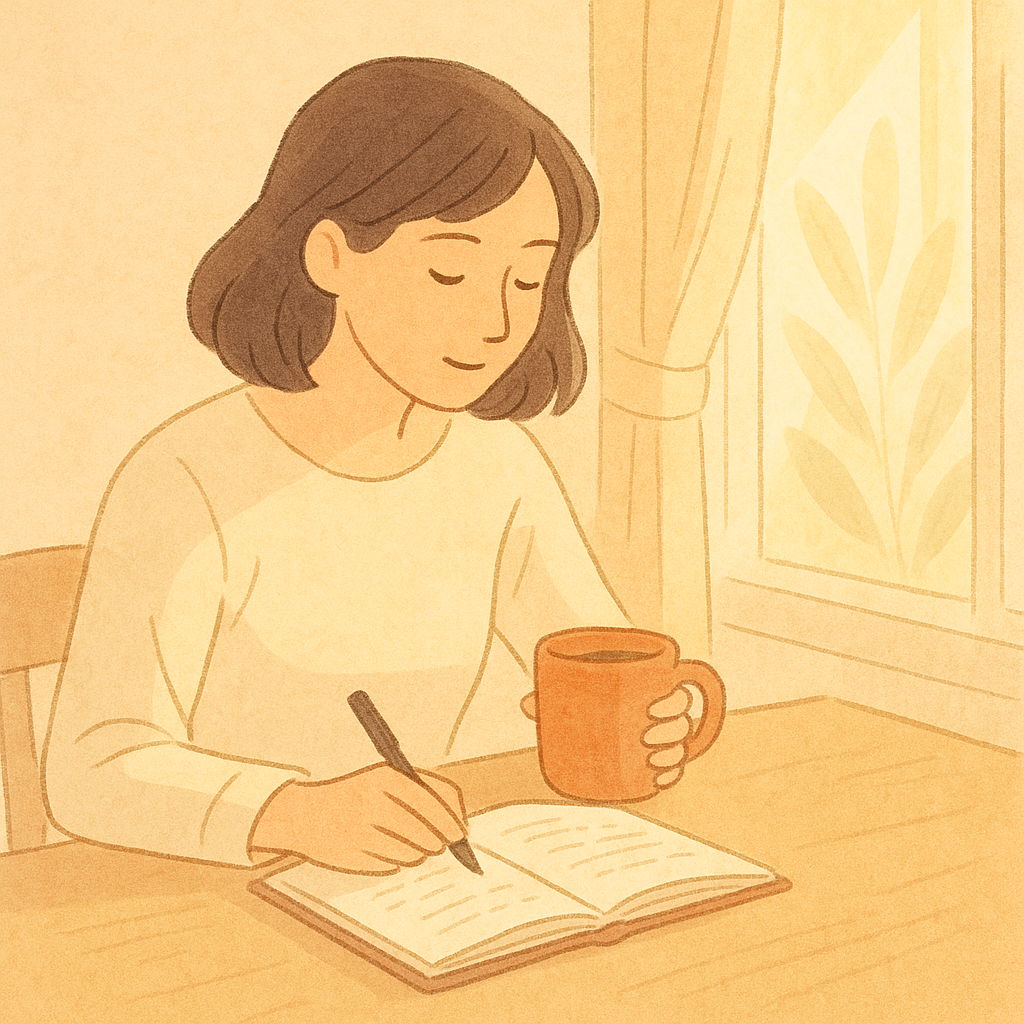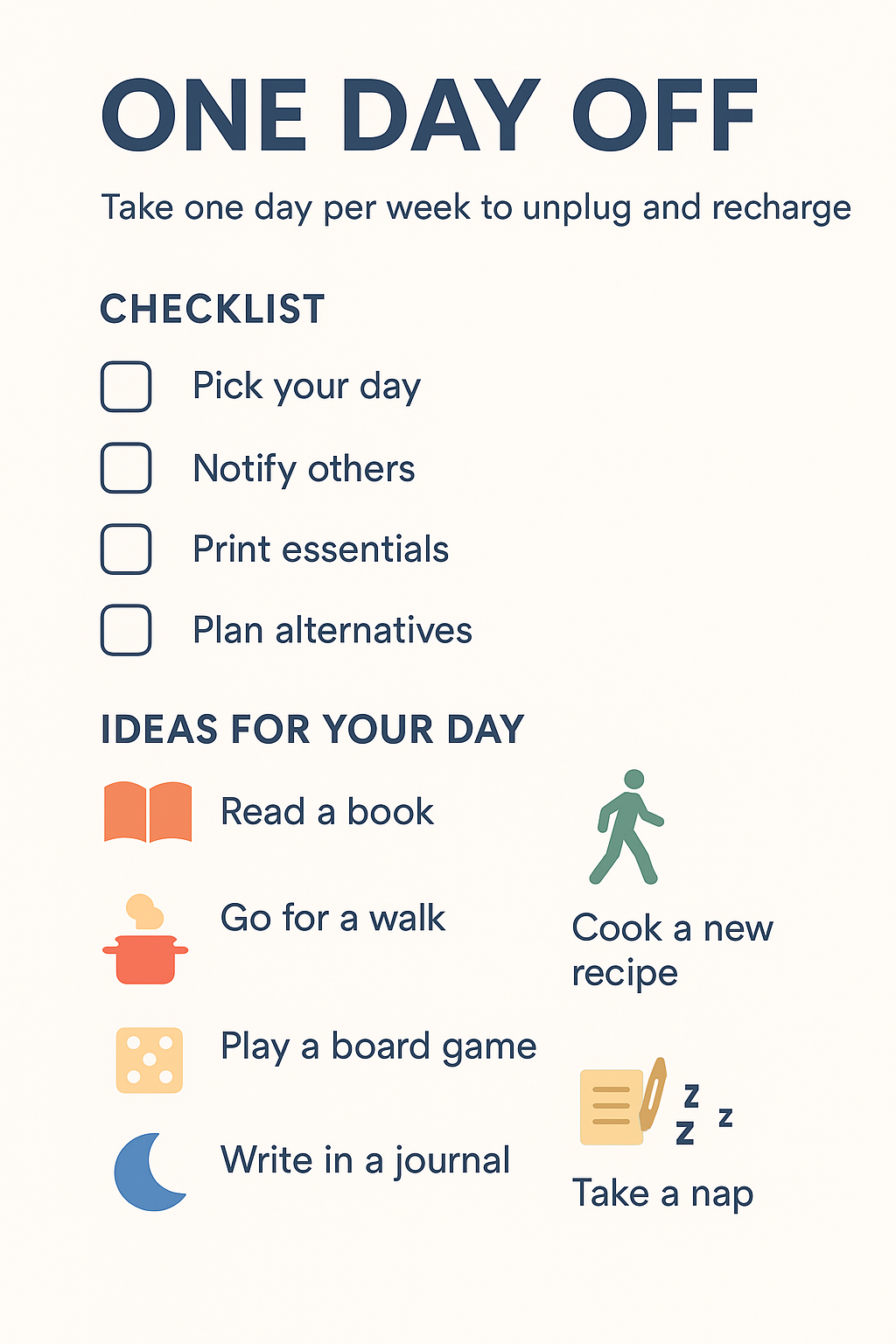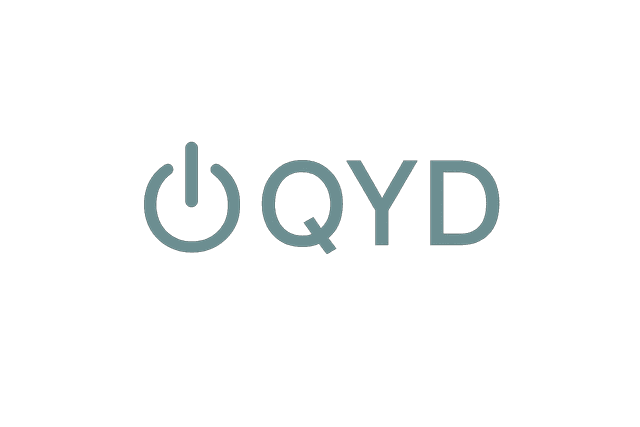One Day Off: How a Weekly Digital Reset Restores Your Brain

TL;DR
Taking one day off from screens each week gives your mind and body a reset. It's not about rejecting technology — it's about reclaiming rest. Research shows regular disconnection improves mood, focus, sleep, and relationships. With a little preparation, it's easier than you think.
The Ancient Idea of Rest
Across cultures and centuries, people have built rhythms of pause into their lives. The Jewish and Christian Sabbath, Hindu Ekadashi, Buddhist Uposatha — all versions of a simple truth: humans need rest.
Today, we face a different kind of exhaustion: not fields or factories, but feeds and notifications. Just as older traditions carved out sacred time away from labor, we can create One Day Off — a modern pause to recover from digital overload.
Psychologists call this “psychological detachment” — mentally switching off from demands. Research shows it leads to lower stress, better sleep, and greater life satisfaction.1
Why One Day Off Works
How to Prepare
One Day Off doesn't need to be complicated, but a little planning helps:
- •Pick Your Day: Most choose Saturday or Sunday, but any 24-hour stretch works.
- •Notify Others: Let friends or coworkers know you'll be offline. Set an email autoresponder if needed.
- •Print Essentials: Directions, boarding passes, or recipes.
- •Plan Alternatives: Stock up on books, board games, or art supplies to avoid defaulting back to screens.
What to Do Instead
Your One Day Off is about joy and presence, not deprivation. Try:
- •Morning walk without headphones
- •Cooking a new recipe with family
- •Reading a physical book
- •Playing board games or puzzles
- •Writing a journal entry or sketching
- •Visiting a park or museum
- •Napping without guilt
Start Small
If a full day feels daunting, try half a day first — Saturday morning until lunch. Notice how your body and mind feel. Extend gradually to 24 hours.

The Ripple Effect
People who practice One Day Off often report:
- •Lower anxiety by Sunday night
- •Improved patience with kids or partners
- •More creative ideas from quiet time
- •Better Monday energy and focus
As Tiffany Shlain (author of 24/6) puts it: “When you turn off screens, you turn on the rest of your life.”2
📱 “One day off isn't about losing connection. It's about regaining yourself.” – QYD
References
1. Sonnentag, S., & Fritz, C. (2007). The Recovery Experience Questionnaire: Development and validation of a measure for assessing recuperation and unwinding from work. Journal of Occupational Health Psychology, 12(3), 204–221.
2. Shlain, T. (2019). 24/6: The Power of Unplugging One Day a Week. Gallery Books.
